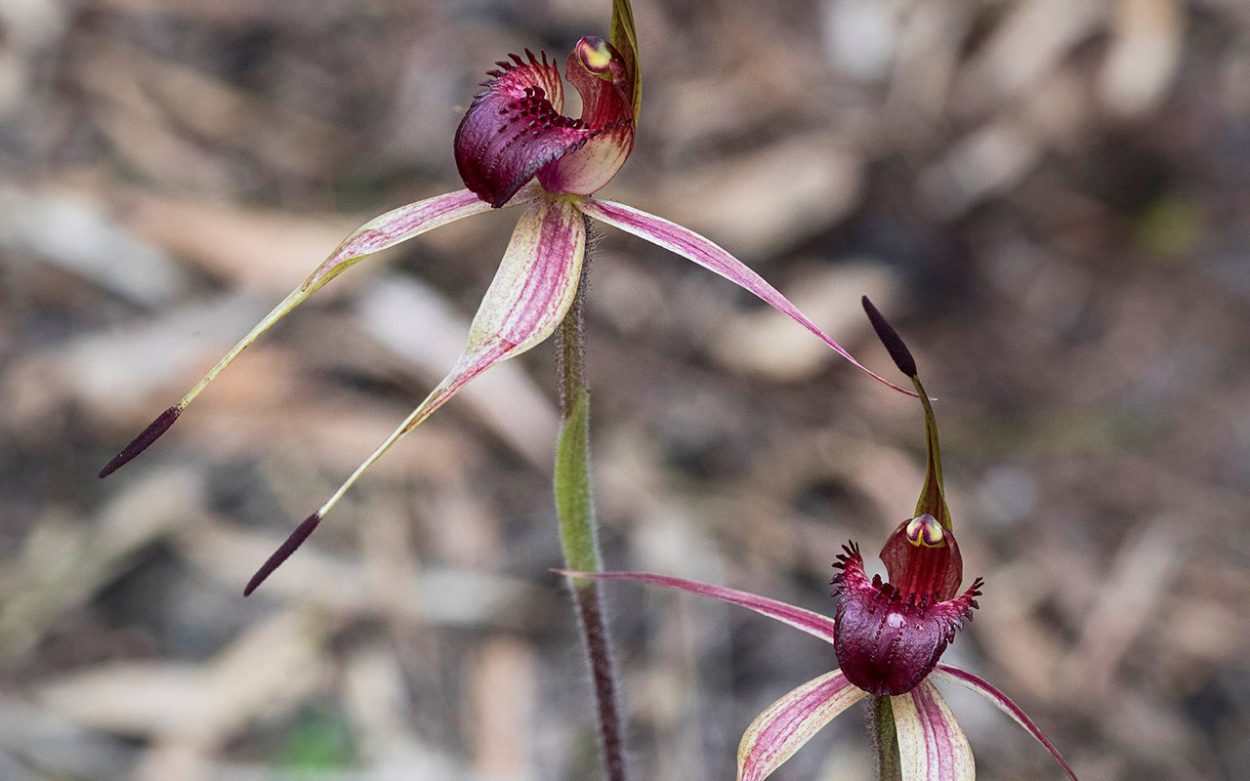A RARE and endangered orchid once found in parts of the Mornington Peninsula and Frankston was last week given a helping hand to return, thanks to a team of experts and passionate volunteers. The Frankston spider orchid, Caladenia robinsonii, is regarded as being critically endangered, with 347 plants remaining in Frankston, Rosebud and Rye as a result of habitat destruction.
Laboratory-raised plants from the Royal Botanic Gardens Victoria nursery have been reintroduced to their natural habitat on the peninsula with the assistance of staff, and volunteers from the La Trobe Botany Society and ANOS Vic.
Lead researcher Dr Noushka Reiter, senior research scientist (conservation) at RBGV, said everyone involved was proud of giving Caladenia robinsonii a chance at survival. “This is the culmination of seven years of research,” she said. “This species is endemic to Victoria and in 2010 was known from only one population of about 40 plants around Rosebud in heathy grassy woodland, on deep, sandy, loamy soils. Weed invasion, fungus invasion and illegal collection have reduced its numbers.
“In addition, Caladenia robinsonii relies on a single species of thynnine wasp for reproduction and a single species of mycorrhizal fungus in order to germinate. “In order to successfully reintroduce this species, we had to find suitable sites where the pollinator was present, identify associated mycorrhizal fungi, and germinate the seed symbiotically with its preferred mycorrhizal fungi.”
The introduction of the orchids will significantly improve the future outlook for the species. It is one of several species being reintroduced by RBGV’s Orchid Conservation Program in the coming month. This research was supported by an Australian Research Linkage grant from the Department of Energy Environment and Climate Action’s Port Phillip natural environment program.
First published in the Mornington News – 2 July 2024




